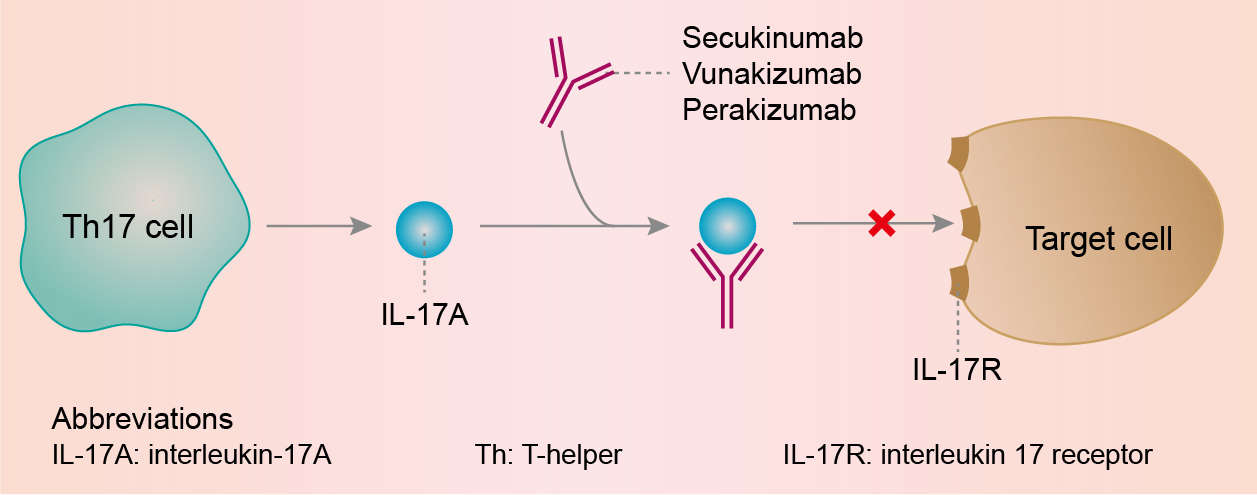Vunakizumab Overview
Introduction of Vunakizumab
Vunakizumab is a recombinant humanized IgGκ monoclonal antibody binds to and neutralises the proinflammatory cytokine interleukin-17A (IL-17A). It was discovered and developed for the treatment of autoimmune diseases such as psoriasis, psoriatic arthritis, ankylosing spondylitis, multiple sclerosis and inflammatory arthritis.
Mechanism of Action of Vunakizumab
Vunakizumab works by targeting IL-17A and inhibiting its interaction with the IL-17 receptor. IL-17A can be produced by a range of different cell types as part of both the adaptive and innate immune responses, including neutrophils, macrophages, mast cells, Group 3 innate lymphoid cells, T helper 17 (Th17) cells and cytotoxic T cells. IL-17A is a naturally occurring cytokine that is involved in normal inflammatory and immune responses. IL-17A plays a key role in the pathogenesis of plaque psoriasis, psoriatic arthritis and ankylosing spondylitis and is up-regulated in lesional skin in contrast to non-lesional skin of plaque psoriasis patients and in synovial tissue of psoriatic arthritis patients. The frequency of IL-17-producing cells was also significantly higher in the subchondral bone marrow of facet joints from patients with ankylosing spondylitis. Vunakizumab selectively binds to and neutralizes IL-17A, preventing its interaction with the IL-17 receptors expressed on keratinocytes, fibroblast-like synoviocytes, endothelial cells, chondrocytes and osteoblasts. As a result, vunakizumab inhibits the release of proinflammatory cytokines, chemokines and mediators of tissue damage and reduces IL-17A-mediated contributions to autoimmune and inflammatory diseases.
 Fig.1 Mechanism of action of vunakizumab
Fig.1 Mechanism of action of vunakizumab
Clinical Projects of Vunakizumab*
| NCT ID | Status | Conditions | Lead Sponsor | Update Time |
| NCT03463187 | Recruiting | Moderate-to-severe Chronic Plaque Psoriasis | Jiangsu HengRui Medicine Co., Ltd. | March 13, 2018 |
* The table was excerpted from the following website
https://clinicaltrials.gov/ct2/results?cond=&term= NCT03463187
For research use only. Not intended for any clinical use.
This site is protected by reCAPTCHA and the Google Privacy Policy and Terms of Service apply.

